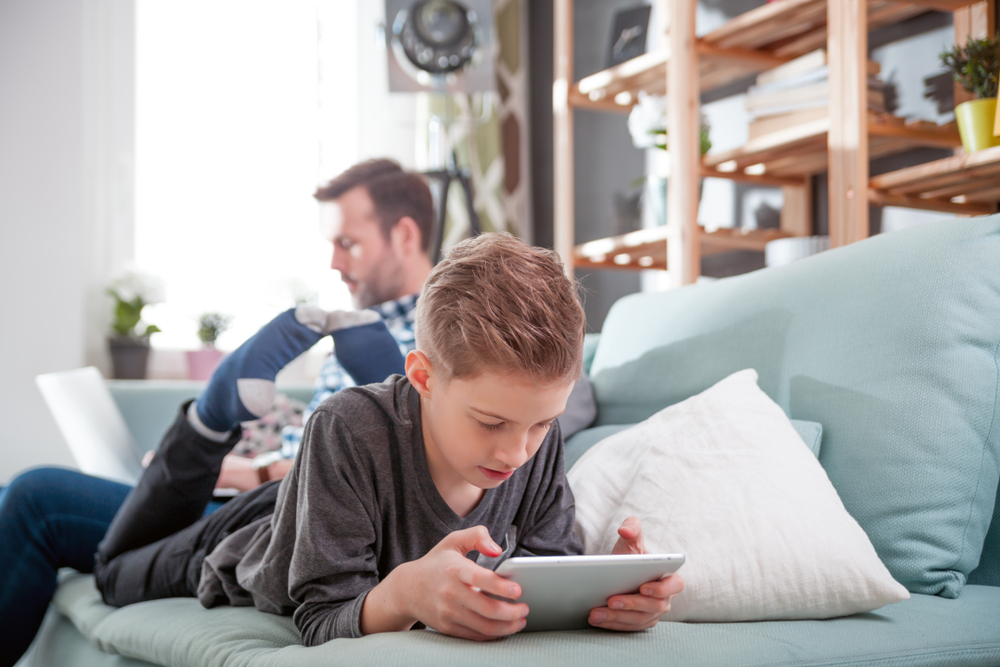How Unregulated Internet Exposure Affects Digitally Savvy Children
February 9, 2020 | UGC
In June of last year, we spoke with child psychologist and advisor to WebPurify Dr. Adam Pletter about how cyberbullying affects children and what parents can do if their kids are being harassed online. But cyberbullying isn’t the only concern when it comes to digitally savvy kids.
Recently, we reached out to Dr. Pletter, an expert on parenting in the digital age, and founder of IParent101, LLC, for further insight. This time we explored how unregulated internet exposure and device usage affects children. Here’s what he had to say:
Even if a child isn’t a victim of cyberbullying, what negative effects can unregulated internet exposure have on a child?
Similar to the impact unregulated internet exposure has on adults, children can experience a number of negative effects of over-use including hyperfocusing on less important life tasks–e.g., posting on Instagram can often be much more engaging than math homework or playing a never-ending game on their device (in many games, the user can re-spawn indefinitely). Similarly, distractions and overstimulation impact children as their regulatory and judgement systems are underdeveloped until 25-30 years old (i.e., normal human development). This puts children at a disadvantage as they often lack the self-awareness that the time spent scrolling TikTok, for example, leaves them feeling fatigued and frequently overwhelmed by the mature content and constant (exciting) stimulation.
Social media and content moderation are constantly evolving. In your profession, have any new challenges arisen with the changing internet landscape? Any new behavioral trends in patients?
Starting young on text messaging apps (e.g., iMessage), children and teens are managing private, often intense, social relationships with little support, mentoring, or supervision by caring adults. Unlike previous generations, children in the digital world are drawn to their specific interests via games, apps, YouTube or basic web browsing and are often ill equipped to manage the content independently, correlated with marked increases in reported symptoms of anxiety, depressed mood and distractibility
The main trend I see in my office is that the average age of a child navigating the adult internet is younger and younger. TikTok is the easiest example, as well intentioned, loving parents struggle to be aware of the scrolling video content their child is consuming.
Could you explain what makes social media and the internet addictive? Are children particularly vulnerable to this?
In short, the easy access to amazing, exciting, infinite content pulls our attention and literally makes us feel good as it disregulates us and hits the reward center of our brains—so the more we scroll, play, click around, the better it literally feels. Add in the stress of life, this content provides an easy escape/coping strategy—at our fingertips, akin to a morphine drip in your pocket. This is true for all humans, but especially true for children/adolescents who by virtue of their developmental stage, often lack the regulation skills and resources to hit the brakes and cope differently.
Are digitally savvy children aware of the negative effect the internet can have on them?
Yes. Most children I talk to are very aware of the potential negative effects (on other people) and often understand how they are making tradeoffs as they choose how to spend their time i.e., TikTok vs. math homework vs. playing with their dog.
Is it surprising for them to find out that their device usage can be the reason for changes in mood or anxiety attacks?
Typically, they can see the connection after the fact, but not in the moments when they are feeling the upset or discomfort. This is true for many adults as well who presumably have fully developed regulatory systems.
How often do patients openly welcome the idea of moderation with regard to devices and the internet?
Many kids are fine with the idea of basic limits (especially when parents start when they are young), yet overestimate their ability to set their own limits. They fail to see how many aspects of the digital world are designed to pull our attention, leading to disregulation, loss of awareness of time as they continue to click and play.
Therefore, my push is for parents to join with them, mentor/model healthier screen time habits, and find reasonable ways to set enforceable limits helping their children learn to self-regulate over time. Parent is a noun and a verb.
Key takeaways from our discussion with Dr. Pletter:
- Increasingly younger kids are being exposed to the adult internet
- Overstimulation leaves children fatigued, overwhelmed
- Adults are not immune to negative effects but are better equipped to self-regulate
- Parents should be actively involved in regulating their children’s screen time
As mentioned above, TikTok has undoubtedly played a role in exposing young children to mature content. Falling in line with many other social media companies, TikTok has recently made changes to its content rules, which we’ll address in a forthcoming post.